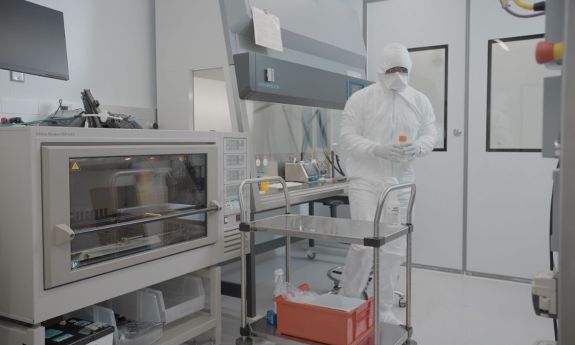Experimental Flu Vaccines to Be Made at Duke
$7 million federal grant boosts Duke’s vaccine manufacturing initiative

The award from NIAID, which is a part of the National Institutes of Health, is part of a contract called the Collaborative Influenza Vaccine Innovation Centers (CIVICs), which NIAID set up to develop new influenza vaccines that induce long-lasting immunity and protect against more variants of the virus. DHVI is unusual in having a Good Manufacturing Practices (cGMP) program that enables it to rapidly produce experimental new vaccines in sufficient quality and quantity to use in clinical trials.
The first investigational vaccine DHVI is being asked to make is more of a traditional design.
“The second mRNA vaccine that we’re making is what we call more of a central immunogen designed vaccine. Think of this as more of a central immunogen vaccine designed around the evolution of the virus,” Denny said. “With this type of vaccine design the hope is that it will elicit a broad spectrum of antibodies against avian flu and reduce the need to adjust the vaccine periodically should we see new strains of avian flu develop.
“This is in contrast to what currently occurs for COVID vaccines as new strains develop and we need to frequently update the vaccine.”
If the virus that’s circulating now and has infected those 13 people changes a year from now, this vaccine could still provide coverage. The hope is also that a broadly effective vaccine would reduce or eliminate the need of boosting year after year as the type of flu changes.
DHVI employs a team science approach and collaborated with the research team at Erasmus University Medical Center in the Netherlands who discovered the influenza immunogen.
“We expect to complete manufacturing this fall, with the goal of having vaccines ready for Phase 1 clinical trials to begin in early 2025,” Denny said.